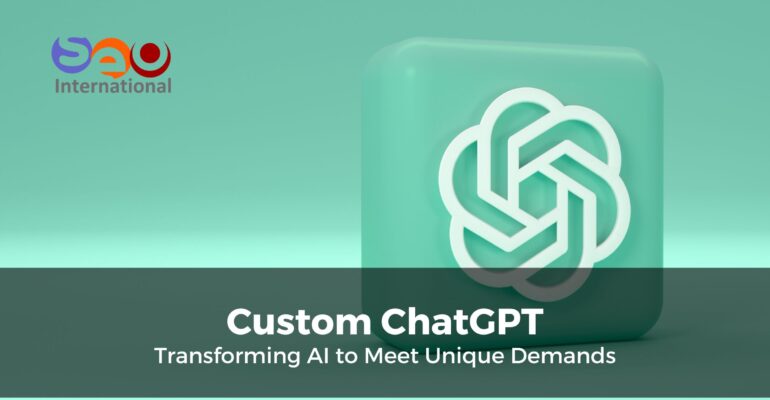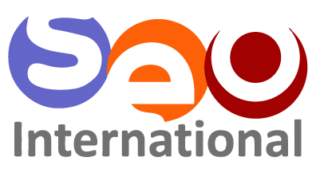Custom ChatGPT: Transforming AI to Meet Unique Demands
January 2, 2024 2024-01-12 16:20Custom ChatGPT: Transforming AI to Meet Unique Demands

Custom ChatGPT: Transforming AI to Meet Unique Demands
ChatGPT is an AI language model developed by OpenAI, designed to generate human-like text responses. It’s capable of understanding and responding to a wide range of queries, making it useful for applications like conversation, content creation, and information retrieval.
Custom ChatGPT refers to a version of the original ChatGPT AI model that has been tailored or fine-tuned for specific applications, industries, or user requirements. This customization enhances the model’s relevance and accuracy in particular contexts or for specialized tasks.
| Aspect | ChatGPT | Custom ChatGPT |
| Use | General Use: Suitable for a variety of applications including conversation, content creation, and information retrieval. | Specialized Use: Tailored for specific industries, tasks, or user needs. |
| Knowledge Base | Broad: Contains diverse data from multiple sources, enabling versatility across topics. | Focused: Fine-tuned with targeted data for efficiency and accuracy in specific domains. |
| Flexibility | High: Ideal for users and developers seeking a versatile, multi-purpose AI tool. | Customizable: Can be modified and integrated according to specific business needs or user preferences. |
| Model Configuration | Standard: Maintains the original setup and training by OpenAI, without additional fine-tuning. | Adapted: Modified from the standard model to meet unique requirements, often with extra training or adjustments. |
Customization of ChatGPT: The Possibilities
Customizing ChatGPT offers diverse opportunities to tailor the model for specific applications. Through fine-tuning specialized datasets, ChatGPT can be adapted to sectors like law or healthcare, becoming more proficient in generating industry-specific responses. For instance, a model trained in legal texts can better serve legal professionals, while one trained in medical data can aid in healthcare scenarios.
Beyond dataset training, integrating custom ChatGPT into various applications enhances its practicality. In customer service, a tailored ChatGPT can power chatbots that provide personalized responses, improving customer interaction. Similarly, in education, it could act as a tutoring assistant, equipped with specific curriculum content. These adaptations showcase ChatGPT’s versatility in meeting unique needs across different domains.
Customizing ChatGPT: The Benefits
Customizing ChatGPT brings several significant benefits, notably enhanced user experience, and increased relevance and accuracy in specific domains, accompanied by successful real-world implementations.
Enhanced User Experience
- Example: In customer service, a ChatGPT model customized for a retail company can understand and respond to queries about specific products, promotions, and policies. This leads to quicker, more accurate responses, increasing customer satisfaction.
- Impact: Customers feel understood and well-served, leading to improved brand loyalty and reduced frustration with automated systems.
Increased Relevance and Accuracy in Specific Domains
- Example: In the healthcare sector, a custom ChatGPT trained in medical literature and patient care guidelines can provide more accurate information to healthcare professionals and patients. It could assist in answering common health queries, suggesting when to seek medical attention, or explaining medication instructions.
- Impact: This increases the trustworthiness and utility of AI in critical domains, potentially aiding in decision-making processes and improving overall healthcare delivery.
Examples of Successful Custom ChatGPT Implementations
- Education: A university might use a custom ChatGPT model to create a virtual tutor specifically knowledgeable in its curriculum. This AI tutor can assist students with course material, provide explanations for complex topics, and offer learning resources.
- Finance: A financial services firm could implement a customized ChatGPT for analyzing market trends and generating reports. Tailored to understand financial jargon and data, this tool can provide quick insights to analysts, improving efficiency in market analysis.
- Entertainment: A media company might deploy a ChatGPT model fine-tuned on movie scripts and film criticism to generate creative content ideas or provide movie recommendations based on specific user preferences.
Customizing ChatGPT – The Challenges
Customizing ChatGPT involves distinct challenges across technical and ethical domains, as well as the need to maintain a balance between specialization and general applicability:
Technical Challenges
- Data Collection and Quality: Gathering and maintaining a high-quality, relevant dataset for training can be difficult and resource-intensive.
- Model Training: Fine-tuning ChatGPT for specific applications requires significant computational resources and technical expertise, along with ongoing updates and maintenance.
Ethical Considerations
- Bias: There’s a risk of the model reflecting biases present in the training data, which can be particularly problematic in sensitive domains.
- Privacy: Ensuring the confidentiality and ethical handling of user data, especially in sectors like healthcare or finance, is critical and challenging.
Balancing Specialization with General Use
- A highly specialized ChatGPT might struggle with tasks outside its narrow domain, losing effectiveness in broader applications. Achieving the right mix of specialization without compromising its general language capabilities is a key challenge.
These points encapsulate the primary difficulties in customizing ChatGPT, underscoring the need for careful planning and ethical consideration in the development process.
Creating a custom ChatGPT involves a series of steps, streamlined for efficiency and effectiveness:
- Define the Objective – Identify the specific purpose of your custom ChatGPT, such as specialized customer support or educational assistance.
- Gather and Prepare Data – Collect relevant data (e.g., legal texts for a law-focused ChatGPT), and preprocess it for training.
- Access ChatGPT Model – Utilize OpenAI’s API or a similar platform to access the ChatGPT model.
- Fine-tune the Model – Train the model on your specific dataset to tailor its responses to your domain.
- Test and Evaluate – Conduct thorough testing for accuracy and relevance, and refine based on feedback.
- Integrate with Applications – Seamlessly incorporate the customized model into your chosen platform or application.
- Continuous Monitoring and Updating – Regularly check and update the model to maintain its effectiveness and relevance.
- Address Ethical and Privacy Concerns – Ensure compliance with privacy laws and ethical standards, particularly for sensitive information.
This condensed guide emphasizes the key steps in creating a custom ChatGPT, balancing technical requirements with practical and ethical considerations.
The following two videos (they’re similar with minor differences) can help you understand step-by-step to create your own custom ChatGPT:
This video discusses creating customized chat GPT models for specific functions using unique data and instructions. It highlights AI’s role in simplifying branding processes and the importance of choosing appropriate tones and prompts for effective chatbot interactions. The potential of integrating third-party services to enhance GPT capabilities is mentioned. The video emphasizes the power and flexibility of building custom GPTs, foreseeing a future with AI personalized to individual needs.


